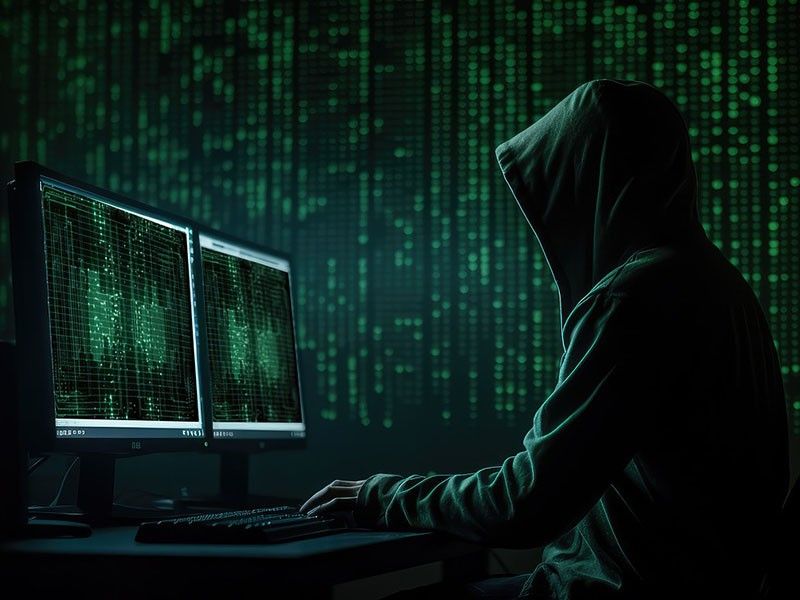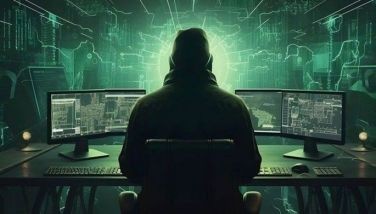Connecting technology to national security

Just as states prioritize the defense of their territory and sovereignty from an outside power, so should they keep strong lines of defense in cyberspace. Unlike the traditional realms of geopolitics, the digital world is always contested and is constantly in a state of crisis and conflict.
The innovativeness of humanity has resulted in the advancement of technology that grants users the ease and comfort of everyday transactions. The internet has transformed the ways of communicating in the social world, as well as the delivery of products and services by businesses and governments.
By enabling people and organizations to collect, store, and analyze vast amounts of data, technology has achieved an unprecedented level of accuracy and certainty. Artificial intelligence possesses a much-trained eye for spotting trends and patterns that can lead to an accurate prediction of outcomes. For example, the ability to predict economic performances, business outputs, and electoral results allows swift and reliable decision-making.
In the realm of national security, technology is useful in detecting trends and movements of actors, such as with the use of satellite images and drones. Take, for example, the images captured by satellites on the movements in the West Philippine Sea which have been used to justify current maritime security strategies. Aside from providing much-needed documentation, these images are, in turn, circulated in social media as part of the country’s information campaign.
Nevertheless, the abilities gained in the digital era are potentially negated by the uncertainties and danger that technology brings. The public and the private sectors have to deal with massive cases of fraud and scams.
There are doubts about election returns channeled through machines. Debates center on whether something is authentic or manufactured. States, no matter how great the powers they hold, are all subject to cyber risks. The Philippines is no exception. Today's digital world is marked by our deeply entrenched interconnectedness with threats of destruction, not by guns and nuclear weapons, but with cyberattacks launched with a few keystrokes.
Protecting access to data is paramount to national security. Cyberspace is an arena of constant crisis, as threats can range from data privacy issues to attacks against government institutions. Fears of manipulation and deletion of data are rampant.
The question of power, then, becomes a matter of who has access to data in cyberspace.
With this, the digital world has exposed an angle of security that prompts states to focus on cybersecurity. Countries are now grappling to craft policies and implement regulations that can keep up with the fast-paced growth of technology. Foreign and security policies are being reoriented to include cybersecurity.
In a few years, policy-making processes will rely more on artificial intelligence in analyzing a wide range of data. Technology-driven decisions will be prominent in foreign policy and security strategies. In this respect, technology delivers a better understanding of networks, timelines, and relations. The wires of human intelligence will greatly increase. Diplomatic engagements and military operations will be reliant on data and technology in planning and implementing their respective strategies.
However, decisions based on AI should not be taken for what they are; they should be received with caution. At the end of the day, the digital order is a man-made dimension of algorithms, software, and artificial intelligence that manipulates the data that digital users input and remains prone to error.
The current digital order will continuously reshape itself as various players in cyberspace compete with one another. The dichotomy of predictability and uncertainty brought by technology affects how states, businesses, and civil society organizations interact with one another.
The impressive levels of generated data and the possibility of great leaps in technology in the near future will only benefit the digital world if suitable policies and regulations are in place. In dealing with cyber risks and addressing the digital divide, cooperation can only be possible through the integration of expertise from various sectors.
It is in this context that international think tank Stratbase Institute in partnership of the Embassy of Canada in the Philippines is hosting a major cybersecurity conference themed, “Fortifying Cyber Cooperation Towards Digital Security” from January 16-17, 2024, in Makati City.
This interaction of top government officials, cybersecurity experts, national security, and geopolitical thought leaders will explore avenues of collaboration to collectively address the rising scourge of cyber-attacks in the local, regional and global digital economy.
As the realities of the digital world demonstrate, cybersecurity is inevitably part of national security. As the Philippines strengthens its walls of defense, it must replicate the same effort to protect the digital order. The power of technology must be harnessed in advancing national security, economic security, and cybersecurity.
Alynna Carlos is a program and research manager at the think tank Stratbase ADR Institute.
- Latest
























